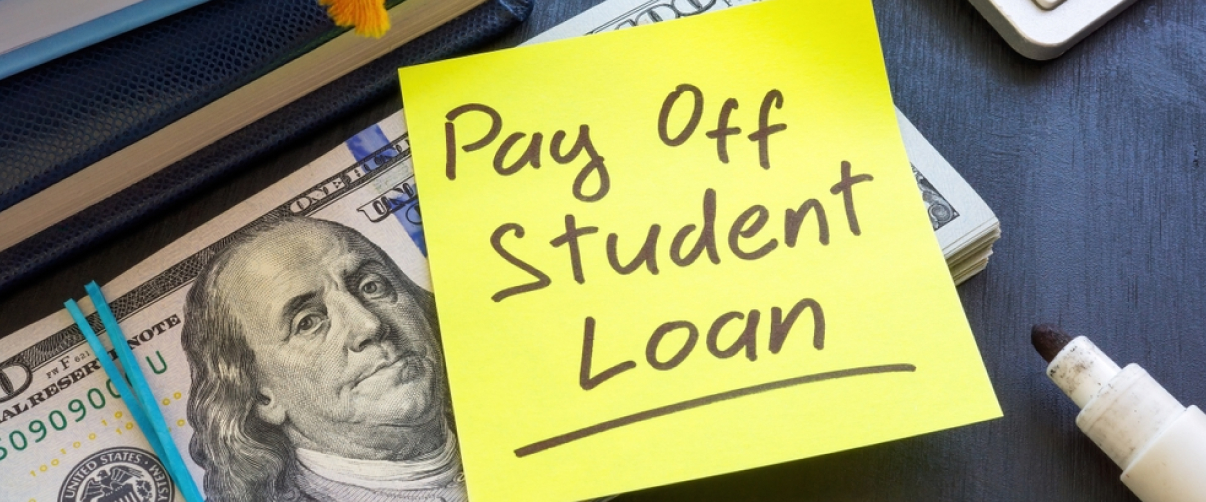Student loan debt has become a significant financial burden for many individuals in the United States. The average student debt for the class of 2020 was over $37,693, with a collective total of $1.7 trillion across the country. This overwhelming debt can lead to stress and anxiety, affecting both mental and physical health. However, with strategic planning and proactive steps, it’s possible to manage and even expedite the repayment of student loans. Here are some effective strategies to help you become debt-free faster.
How to Pay Off Student Loans Faster: Tips for Debt-Free Living

1. Start Early by Making Payments During School or Grace Period
One of the most effective ways to reduce your overall student loan debt is to begin making payments while you’re still in school or during your grace period. Even small payments can help manage the interest that accrues on your loans, preventing it from capitalizing and increasing your total debt. By addressing the interest early, you can reduce the amount you’ll have to pay in the long run.
2. Enroll in Automatic Debit Payments
Enrolling in automatic debit ensures timely payments as the student loan servicer automatically deducts the payment from your bank account each month. This not only helps you avoid late fees but may also qualify you for an interest rate reduction. Many loan servicers offer a discount for borrowers who enroll in automatic payments, making it a simple way to save money over the life of your loan. Contact your loan servicer to see if you are eligible for an interest rate reduction through automatic payments.
3. Make Extra Payments Whenever Possible
Paying more than the minimum required monthly payment can significantly reduce the overall interest you pay and shorten the life of your loan. Even small additional payments can make a big difference over time. Direct any extra payments toward the principal balance of your loan, focusing on those with the highest interest rates to maximize your savings. Remember to inform your loan servicer that you want the extra amount applied to your current balance, not future payments.
4. Utilize Windfalls to Pay Down Your Loan
Allocating tax refunds towards loan repayment can accelerate the process. Any unexpected funds such as tax refunds, bonuses from work, or monetary gifts can be used to make lump-sum payments on your student loans. By applying these windfalls directly to your loan principal, you can reduce the amount of interest that accrues and pay off your debt faster.
5. Refinance Your Student Loans for Better Rates
Refinancing your student loans can potentially lower your interest rate, reduce your monthly payments, or shorten your repayment term. This option is particularly beneficial if you have a good credit score and steady income. Keep in mind that refinancing federal loans into a private loan means losing federal benefits like income-driven repayment plans and loan forgiveness programs, so weigh your options carefully.
6. Explore Loan Forgiveness Programs
Several loan forgiveness and repayment programs exist for specific groups like teachers, public servants, and military members. Certain professions offer loan forgiveness programs that can significantly reduce or even eliminate your student loan debt. For example, the Public Service Loan Forgiveness (PSLF) program forgives the remaining balance on Direct Loans after you have made 120 qualifying monthly payments while working full-time for a qualifying employer, such as government organizations or non-profit entities.
7. Take Advantage of Employer Assistance Programs
Some employers offer student loan repayment assistance as part of their employee benefits package. This can be an excellent way to reduce your debt faster while also benefiting from your employment. Check with your human resources department to see if your company provides any form of student loan repayment assistance.
8. Create a Budget and Prioritize Your Spending
Developing a budget can help you find extra money to put toward your student loans. By tracking your income and expenses, you can identify areas where you can cut back and allocate more funds to your debt repayment. Prioritizing your spending is essential in accelerating your loan payoff.
9. Avoid Extending Your Repayment Terms
While extending your repayment term can lower your monthly payments, it also means you’ll pay more interest over time. To pay off your loans faster, stick to the shortest repayment term you can afford. This approach ensures that more of your payment goes toward the principal balance rather than interest.
10. Consider Making Biweekly Payments
One suggested approach is biweekly payments, which equates to making an extra payment each year. Instead of making one monthly payment, consider splitting your payment in half and paying every two weeks. Over time, this can reduce the total interest you pay and shorten your repayment period.
By implementing these strategies, you can take control of your student loan debt and work towards a debt-free future. Remember, every extra dollar you put towards your loan reduces the amount of interest you’ll pay over time, bringing you one step closer to financial freedom.











